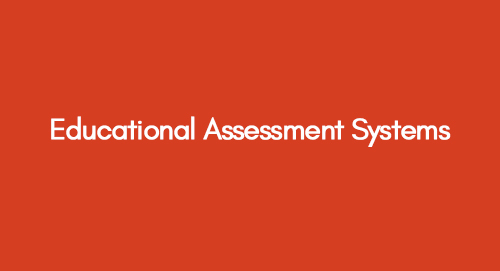CBD oil is a hemp extract from legal hemp strains and contains a mixture of lifesaving cannabinoids. People have long used herbal oils for flavoring or health.
The natural ingredients of herbs including marijuana are believed to have beneficial effects on health. CBD oil is known to be extracted from marijuana or hemp extract. The core objective of this study paper is to evaluate and appraise the positive and negative effects of CBD oil. For the respective purpose different researches and surveys on the use of CBD oil are brought into consideration to assess and analyze the potential outcome; whether positive or negative. CBD oil is used in medicine as an adjuvant in the treatment of various diseases such as cancer, Parkinson’s, and other physical diseases but at the very same moment, CBD oil consumption can hurt health.
Discussion
Exploring the positive and negative effects of CBD oil in detail below.
Positive Effects of CBD Oil
The consumption of CBD oil in a certain amount and under controlled conditions can give a series of positive outcomes. Most of the positive effects of CBD oil are related to health and cure. CBD oil is best known for its cure for epilepsy (seizure). CBD oil has been very effective and beneficial in the treatment of epilepsy. The effect of CBD oil has been tested on several epilepsy patients for 3 months (Who. int, 2018) to consider the treatment through herbal oil. Positive and prominent results were obtained, some of the patients did not suffer from seizures for the entire three months and one exhibited partial improvement and betterment. There are several positive effects of CBD oil such as stress reduction, relieving pain and inflammation, reducing nausea, and so on. CBD oil has excellent therapeutic and healing properties and attributes. This includes issues such as anxiety disorder, depression, Post-traumatic stress disorder, and insomnia (Abizaid et al., 2019). This is the major reason why people today use full CBD oil. CBD oil deserves the highest praise as a natural painkiller. It offers a quicker and longer-lasting effect in pain relief and relaxation. CBD oil also helps to relieve the pain of inflammation and CBD is praised for its anti-inflammatory feature and quality. One prominent reason for the fame of CBD oil is its ability to relieve and heal inflammation is the placebo effect. CBD oil is also able to effectively soothe joint inflammation.
Psychodynamic Therapy in Comparison to Medication Help in Treating Depression in Teenagers
One of the important complexes in CBD oil is pinin. This complex can significantly improve memory. Therefore, consuming full-spectrum CBD oil helps to improve cognitive abilities (Zuardi, 2012). CBD Oil contains a sufficient amount of fatty acids, such as omega 3 and omega 6. These fatty acids are very useful for improving heart health. The amino acids and protein present in full-spectrum CBD oil also accelerate the recovery process from some health problems. This is due to the ability of the protein to help the body repair and build tissues. Rapid repair and tissue creation can effectively enhance the recovery process.
Negative Effects of CBD Oil
Anything that will not be consumed in a controlled amount or overdosed would ultimately lead to adverse effects. CBD oil, along with its positive effects has several negative ones as well. Among the most important negative effects of CBD oil is that it is experimented to have a cure for cancer, by inhibiting the cancer cell. However, it is also observed that it is not true in every type of cancer, as some cancer cells accelerate and speed up when exposed to cannabidiol. Although cannabidiol, if consumed through the mouth or sprayed under the tongue is considered to be safe. Negative and adverse effects of CBD oil overdoes are dry mouth, drowsiness, low blood pressure, and light headiness (Webmd.com, 2019). Cannabidiol also is observed to decrease appetite and cause fatigue with vomiting and diarrheas. Some epilepsy patients were tested for a placebo-controlled trial but those patients showed no sign of improvement (Who. int, 2018).
The use of CBD oil in vitro fertilization has certain negative effects; cell viability, a decrease in fertilization capacity, and causes inhibition in drug metabolism. A safety concern regarding CBD is that instead of a medication it is sold as a food supplement in markets and the label of this supplement is not entirely true. FDA does not support the idea of CBD as a dietary supplement. CBD does not entirely cause drowsiness, it has a different effect on different people. Some people experience the adrenaline and become energetic while some feel drowsy and lethargic.
Conclusion
Eventually, herbal oil for its therapeutic and healing benefits has been used for centuries, but everything has its benefits and drawbacks. This research evaluates that CBD oil has several positive effects on medical and heafieldsield as it is used for the treatment of various physical and psychological diseases. CBD oil has been observed to have positive effects on the treatment of epilepsy, Parkinson’s disease, and Alzheimer's. CBD oil is a natural pain killer, relieving inflammation and pain. It also reduces anxiety and depression, having a soothing effect on patients with PTSD. There is a contradictory statement on the effect of CBD oil on appetite, as some say it increases appetite and helps patients with anorexia. However, some results claim that CBD oil can decrease the appetite of a person which reflects the negative effects of CBD oil. It also has its negative effect if overdosed, such as laziness, drowsiness, and nausea. Therefore, one should consider CBD oil in a suitable amount and under controlled conditions to avoid its adverse effects of it.
References
Abizaid, A., Merali, Z. and Anisman, H., 2019. Cannabis: A potential efficacious intervention for PTSD or simply snake oil?. Journal of psychiatry & neuroscience: JPN, 44(2), p.75.
Hazekamp, A., 2018. The trouble with CBD oil. Medical cannabis and cannabinoids, 1(1), pp.65-72.
Tzadok, M., Uliel-Siboni, S., Linder, I., Kramer, U., Epstein, O., Menascu, S., Nissenkorn, A., Yosef, O.B., Hyman, E., Granot, D. and Dor, M., 2016. CBD-enriched medical cannabis for intractable pediatric epilepsy: the current Israeli experience. Seizure, 35, pp.41-44.
Webmd.com. (n.d.). Cannabidiol (Cbd): Uses, Side Effects, Interactions, Dosage, and Warning. [online] Available at: https://www.webmd.com/vitamins/ai/ingredientmono-1439/cannabidiol-cbd [Accessed 11 Nov. 2019].
Who.int. (2018). [online] Available at: https://www.who.int/medicines/access/controlled-substances/CannabidiolCriticalReview.pdf [Accessed 11 Nov. 2019].
Zuardi, A.W., Crippa, J.A., Hallak, J.E., Bhattacharyya, S., Atakan, Z., Martín-Santos, R., McGuire, P.K. and Guimarães, F.S., 2012. A critical review of the antipsychotic effects of cannabidiol: 30 years of a translational investigation. Curr Pharm Des, 18(32), pp.5131-40.
Get 3+ Free Dissertation Topics within 24 hours?






























